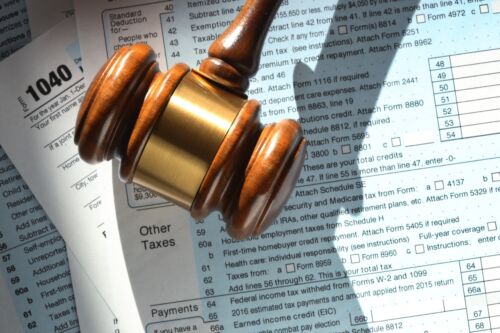


When President Trump was re-elected in 2024, experts expected his administration to scale back prosecutions of white-collar crimes, including those involving tax fraud and tax evasion. The President has largely met those expectations, focusing instead on immigration enforcement and prosecuting violent crimes. Nonetheless, the IRS has continued to use federal tax prosecutions as part of its broader immigration and border enforcement policies.
Having de-prioritized traditional targets of tax evasion, such as small businesses, partnerships, and large corporate tax fraud cases, the Trump administration has focused instead on prosecuting tax crimes with international ties. As a result, certain individuals and business entities are at higher risk of being investigated for tax evasion. These include:
In addition, recent layoffs at the IRS have curbed its enforcement capacity and the agency has entered into a data-sharing agreement with ICE in an effort to investigate and prosecute financial crimes involving immigrants.
Tax evasion occurs when a person intentionally and knowingly seeks to avoid a legal obligation to pay taxes. The crime is similar to tax fraud, which occurs when a person intentionally submits false or fraudulent documents to the IRS in an attempt to avoid or reduce their tax obligations.
The IRS Criminal Investigation Unit is responsible for investigating suspected tax fraud and evasion. In 2024, the IRS reported a significant increase in criminal tax investigations, with over 2,500 cases initiated and a conviction rate over 90%. While reports of IRS tax fraud investigations for 2025 are not currently available, those numbers will likely decrease under President Trump. Nonetheless, the IRS will continue to identify “red flags” that could indicate possible tax evasion. Indicators of tax evasion include:
If the IRS suspects you committed tax evasion, anticipate the following.
If you were charged with tax fraud or evasion or suspect you are under investigation, do not try to go it alone. An experienced tax evasion lawyer can protect your rights and help you avoid many of the most serious consequences of a tax evasion investigation.
Hope Lefeber has represented people charged with federal tax crimes for over 30 years. She began her career as an enforcement attorney with the United States Securities & Exchange Commission (SEC), where she learned firsthand how the government investigates, prepares, and prosecutes federal white-collar crimes. Today, she leverages that experience to defend people charged with tax crimes and helps them achieve the best possible results. She is routinely called upon by tax preparers, accountants, CPAs, businesspeople, and others who are under investigation or facing criminal charges for tax fraud, tax evasion, and other white-collar crimes.
Ms. Lefeber frequently collaborates with a team of expert forensic accountants and investigators to analyze and deconstruct complex criminal tax cases to achieve optimal outcomes. She will carefully examine your financial situation to identify the most effective defense strategy with the singular goal of reducing or eliminating the potential criminal penalties.
To put the expertise of an experienced federal criminal tax crime defense lawyer to work for you, contact the Law Offices of Hope Lefeber today.
© 2025 Law Offices of Hope Lefeber| View Our Disclaimer | Privacy Policy